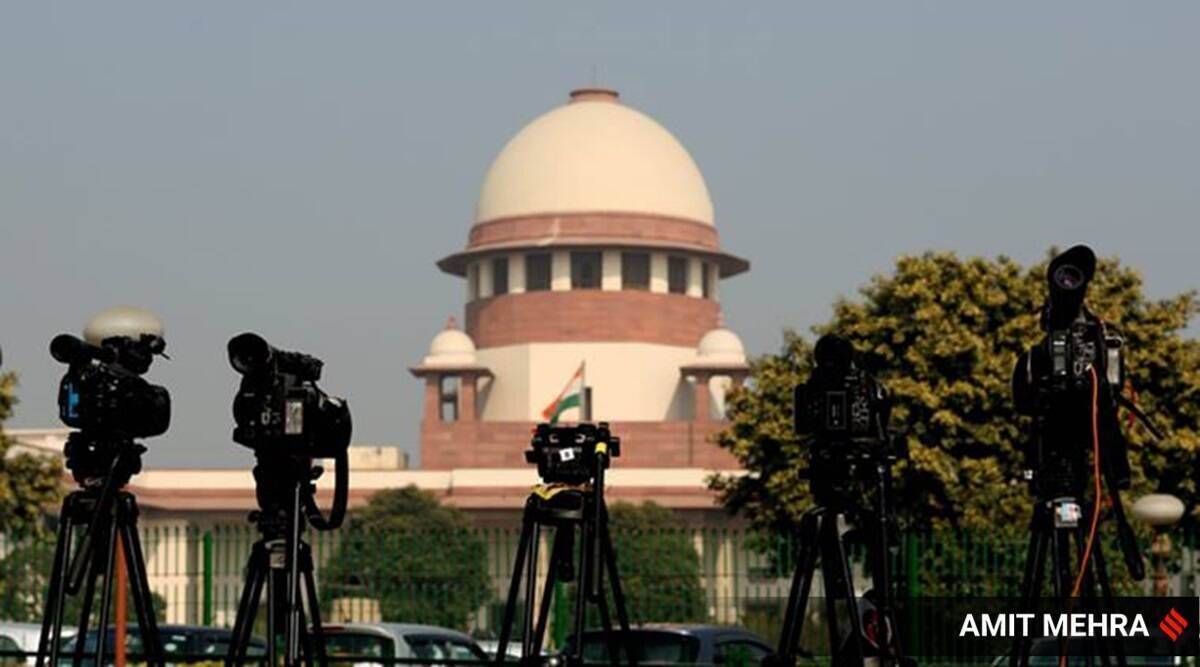 Supreme Court of India (File)
Supreme Court of India (File) The Delhi police, which investigated complaints of hate speech at a “dharam sansad” organised by the Hindu Yuva Vahini in the national capital on December 19, 2021, has said that “no hate was expressed in the” Delhi event as alleged by the petitioners.
“…no hate was expressed in the events at Delhi against group, community, ethnicity religion or faith”, it said in its affidavit, adding that the “speech was about empowering one religion to prepare itself to face the evils which could endanger its existence, which is not even remotely connected to call for genocide of any particular religion”.
The affidavit was filed in response to the notice issued by the court on a petition that sought probe into allegations of hate speech at the “dharam sansad” in Haridwar and Delhi last year.
The Police said that it had received three complaints alleging that open calls were made for genocide of Muslims with the objective of achieving ethnic cleansing. The complaints also referred to a speech by Suresh Chavanke, Editor of the news channel Sudarshan News, and claimed that it contained instances of what can be termed “hate speech”.
“All the…complaints were consolidated and enquiry was initiated on them. After that deep inquiry was conducted, evaluation of video etc, then the answering respondent did not find any substance in the video as per allegation levelled by the complainants. In the video clip of the Delhi incident, there is no utterance against any particular section/community. Hence, after inquiry and after evaluation of the alleged video clip, it was concluded that the alleged speech did not disclose any hate words against a particular community as alleged or otherwise. Bare perusal of the complaints made, the statements, which are alleged to be offensive, would divulge that there are no specific words against a particular community or any community were uttered by the gathering or any other person in that event” the affidavit said.
It added that there is no use of such words which mean or could be interpreted as “open calls for genocide of Muslim in order to ethnic cleansing or open call for murder of an entire community in the speech”.
The police further said that “none of the words which were spoken during the event in any manner whatsoever overtly and explicitly described Indian Muslims as usurpers of land territory, as predators of land, livelihoods and of Hindu women, and nothing was said or done which could create an environment of paranoia amongst any religion, caste or creed”.
The affidavit, while referring to the law on free speech, added that “the fundamental freedom of speech under Article 19 (1) (a) can be reasonably restricted only for the purposes mentioned in Article 19(2), and the restriction must be justified on the anvil of necessity and not the quirks and of convenience and expediency. We must practice tolerance to the views of others. Intolerance is as much dangerous to democracy as to the person himself”.
The Police also said that the “the petitioner was trying to draw an incorrect and absurd inference by isolated passages disregarding the main theme and its message”.
It pointed out that the apex court “has time and again reiterated that commitment to freedom of expression demands that it cannot be suppressed unless the situation created by allowing the freedom are pressing and the community interest is endangered. The anticipated danger should not be remote, conjectural or far-fetched. It should have proximity and direct nexus with the expression. The expression of thought should be intrinsically dangerous to the public interest which is not the case in instant matter”.
Referring to the “clear and present danger” test which was evolved by the United States Supreme Court to determine where discussion ends and where incitement or attempt begins, the affidavit added that “in the present case, the speech does not disclose any such aim to incite caste, language and communal fanaticism as alleged or otherwise, nor the same has resulted in any action has been taken in furtherance of such incitement”.
- The Indian Express website has been rated GREEN for its credibility and trustworthiness by Newsguard, a global service that rates news sources for their journalistic standards.

